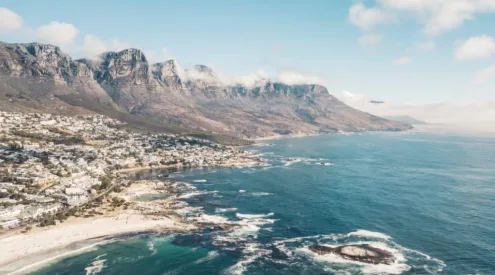The Pretoria high court has recognised the poor air quality in the Mpumalanga highveld as a breach of residents’ constitutional rights to an environment not harmful to their health and well-being.

Secunda power station: Picture: Flickr Commons/ Horst Vogel
Data analysis in 2021 revealed that Eskom is the world’s worst polluting power company, emitting 1 600 kilotonnes of sulphur dioxide (SO2) in the 2020-21 financial year. This surpasses the entire power sector emissions of any country, except for India.
SO2 is has a detrimental effect on the health of surrounding communities, where a study on the health implications of coal-fired power stations in South Africa revealed that it is responsible for 2200 deaths annually. And this is without taking into account the cumulative effects of living in a polluted environment.
These effects were finally put on trial at the Pretoria high court, with Judge Colleen Collis ruling on 18 March that air pollution in the Highveld Priority Area (HPA) is so severe that it breached the constitutional right to an environment not harmful to health or well-being.
This judgement was preceded by more than a decade of hard work by a team led by Robyn Hugo, who when writing for the Daily Maverick, said that the ‘court held that the Minister of Forestry, Fisheries and the Environment (DFFE), Barbara Creecy, and her predecessors in that role, have unreasonably delayed in promulgating regulations to implement and enforce the HPA air quality management plan.’
According to Hugo, there have been some rather dubious activities surrounding the DFFE and Eskom after not publicising their commissioned research on the numbers of deaths and illnesses from HPA air pollution and only disclosing information when ‘compelled’ to do so.
Eskom’s tactic of avoidance was evident in the 2013 background information document, which argued that ‘Power stations do not harm human health,’ which was of the Eskom and Sasol’s battle to avoid complying with South Africa’s statutory limits for toxic emissions.
According to Hugo, Sasol and Eskom have complained about the costs of compliance to South Africa’s minimum emission standards and ignored the costs of non-compliance, threatening increased load shedding if they have to reduce their emissions.
Even though issues with Eskom’s emissions and South Africa’s deeply entrenched fossil fuel economy remains a problem, the recent High Court judgement is a victory for a civil society where groundWork and the Vukani Environmental Movement succeeded in their “Deadly Air” litigation brought by the Centre for Environmental Rights. This comes on top of other similar victories where the seismic surveys on the Wild Coast and West Coast were halted.
ALSO READ















